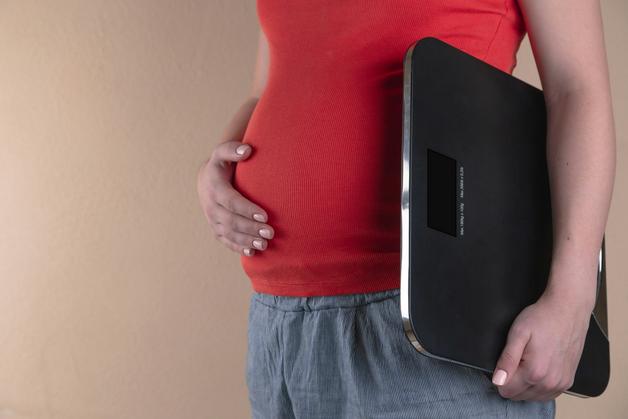Pregnancy aches—two words, yet so many worries. A growing number of parents wonder if this relentless body aching is just another chapter in the pregnancy story or a hidden alarm bell. Many feel a dull, nagging back pain before breakfast turns to a heaviness in the legs by nightfall; others are caught off guard by a sharp, stretched sensation at the hip or an unexpected spasm just when they find a comfortable chair. Is it the hormones? The weight? Does stretching actually help, or does it push the discomfort further? Navigating pregnancy aches can sometimes feel like finding your way through a maze, but there are clear, evidence-based solutions that put you back in control. Ahead, discover the biology behind the aches, learn to decode warning signs, and explore preventive and relief strategies—including when medical support is essential.
Understanding pregnancy aches: an everyday reality
Across all trimesters, pregnancy aches appear in many shapes—a subtle stiffness when getting up, migrating muscle soreness, or that sense of being weighed down in every joint. These discomforts are a direct echo of the sweeping changes underway: hormonal surges, expansion of the uterus, and even subtle shifts in how you hold your body. The medical term for muscle and ligament relaxation during pregnancy is mediated largely by relaxin—a hormone that acts much like a gentle softener, preparing tissues for birth but also making muscles more prone to micro-injury. Sometimes, aches start as early as the first trimester, with little cramps and back pain sneaking in before the baby bump is even visible.
Are all aches a sign of trouble? Hardly—most reflect healthy adaptation, especially if unaccompanied by worrying symptoms. Yet, knowing how to spot the difference is what truly empowers parents.
Why do pregnancy aches emerge? Science and daily life collide
Hormonal changes (notably relaxin and progesterone) are at the heart of pregnancy aches. Their action causes joints and ligaments—think of those supporting the pelvis, lower back, and hips—to soften and stretch, which both enables smoother delivery but also raises the risk of strain or overuse.
But hormones aren’t acting alone. The weight gain linked to foetal growth, nutritional supply, and fluid retention (oedema), pushes the body’s centre of gravity forward, changing posture and creating unfamiliar tension especially in the lower spine, abdomen, and hips. Notice your walking pattern shifting? That’s biomechanics responding to the baby’s growth. Add deficiencies in calcium or magnesium, restless sleep, excess or deficient movement, or simply poor everyday posture, and pregnancy aches may become inevitable.
Low back pain, round ligament pain, pelvic girdle pain, and leg cramps—these are only the highlights of a longer list that includes joint stiffness, muscle soreness, and nerve compression symptoms (like sciatic pain or tingling of carpal tunnel syndrome).
Common myths and misconceptions about pregnancy pain
Pregnancy aches don’t always mean there’s a complication in progress. A sharp jolt of round ligament pain with a sudden change in position? Common in the second trimester. Generalized fatigue with morning muscle heaviness? Often a normal response to broken sleep and tissue stretching.
Myths persist—that pain should simply be endured in silence, for example, or that discomfort strikes only late in pregnancy; however, mild cramps and even lower back pain may greet you as early as the first weeks after conception. Relief is possible and recommended, depending on individual comfort and symptoms.
Tracking pregnancy aches, trimester by trimester
First trimester: hormonal storms and subtle soreness
Surprised by muscle fatigue before you’ve grown a bump? As pregnancy hormones skyrocket, so do symptoms: fatigue, mood swings, breast tenderness, minor headaches, and light cramping. The uterus adjusts—ligaments begin stretching, tiny muscle fibres cry out, and the result is a landscape of aches that can include lower back pain, morning stiffness, and that sensation of being tired ‘all over.’
Second trimester: classic discomforts come into play
With nausea fading, the growing uterus demands space. Round ligament pain—a quick, sharp twinge low in the abdomen or groin—joins the scene. Back pain, hip tension, and leg cramps cluster around the hips and pelvis. The joints, relaxed by hormones, become more prone to pain after a day’s activity. Swelling begins, posture shifts, and areas like the neck and shoulders might join the chorus of discomfort, especially for those working desk jobs.
Third trimester: accumulating load, intensified aches
Now the aches may deepen. The extra weight enhances joint pressure, turning manageable soreness into persistent pelvic, hip, or back discomfort. Swelling in feet and hands, sleep disruption, and morning sluggishness peak. Add on Braxton Hicks contractions—brief, mild tightening in the uterus—alongside sciatic nerve pain and heartburn, and late pregnancy becomes a patchwork of aches, each with its specific relief strategies. Thankfully, most of these symptoms dissolve after delivery, once the body’s hormonal landscape normalizes.
Where pregnancy aches settle: patterns and symptoms
Lower back and pelvic pain
Lower back pain sits at the top of pregnancy aches, often described as dull, continuous, and aggravated by standing, walking, or poor mattress support. Upper back pain sometimes surfaces later, driven by postural demands and persistent muscle tension.
Pelvic girdle pain and symphysis pubis dysfunction—marked by a sharp ache at the front of the pelvis—can make daily tasks daunting, turning simple movements or stair climbing into a complex ordeal. Round ligament pain delivers sharp or aching sensations, typically triggered by sudden twists or getting up too quickly.
Abdominal discomforts and expanding ligaments
Light abdominal cramps, often mistaken for premenstrual pain, appear as the uterus expands and ligaments are pulled in new directions. Most of the time, these are fleeting and not a cause for worry—unless pain is severe or joined by bleeding or fever.
Leg cramps, nerve tingling, restless legs
Sudden, nighttime leg cramps—that stabbing jolt up the calf or foot—are a frequent visitor, especially with mineral deficiency or poor circulation. Restless legs syndrome, bringing tingling, itching, or an irresistible urge to move, disrupts restful sleep for many. Hydration, gentle stretching, and a diet supplying magnesium and calcium are your first line of defence.
Joint pain, headaches, and swollen limbs
Joint aches, triggered by hormonal tissue relaxation and fluid retention, echo through hips, knees, and hands. Early pregnancy may also see a spike in headaches, due to vascular changes. Others notice swelling of joints, especially by day’s end, contributing to stiffness and sometimes compressing nerves—occasionally resulting in symptoms characteristic of carpal tunnel syndrome.
Rib pain, sciatic pain, body aches
As the uterus expands upwards, some may feel aches just under the ribs—sometimes a dull throb, sometimes a sharper jab. When the sciatic nerve, which runs from the lower back to the feet, is compressed, pain can shoot or burn down the leg, making movement a challenge.
Causes and key influences behind pregnancy aches
Hormones in the spotlight
Relaxin and progesterone break down the normal tension within ligaments and muscles, increasing risk for sprains or aches—particularly in the pelvis, hips, and lower back.
Mechanical and lifestyle factors
Baby’s rapid growth stretches muscles and nerves, and everyday habits—whether reduced activity or poor posture—can make a real difference. Lifting heavy items without proper form, standing for long stretches, even wearing unsupportive shoes, can tip the balance from mild to severe pregnancy aches.
Fluid retention and mineral balance
Swelling, or edema, not only causes puffy ankles and hands but also presses on nerves and joints, sometimes resulting in tingling and loss of strength. Imbalances in calcium and magnesium—two pillars of muscle health—can spark muscle cramps and heighten soreness.
Pre-existing health and emotional factors
Those with pre-pregnancy back or joint pain are more likely to feel pronounced aches. Chronic illness and mental health—especially stress and anxiety—tend to turn up the volume on physical symptoms.
Effective strategies for managing pregnancy aches
Everyday habits and home care
Consider gentle stretching at dawn and dusk. Prenatal yoga, swimming, and other low-impact exercises offer flexibility with minimal joint strain. Short walks loosen muscles and improve blood flow, counteracting that stiffness after rest. Warm water therapies—baths, compresses—relieve tension; alternating with cool packs for inflammation can help optimize muscle comfort.
Professional massages (by those trained in pregnancy care), supportive footwear, and ergonomic tools—think lumbar pillows, or a maternity support belt as advised by a doctor—form a powerful toolkit.
Ergonomics, sleep, and rest
Lying on the side (preferably the left) with a pillow between the knees can reduce pelvic pressure and improve blood flow. Choosing firm seating, maintaining an aligned spine at a desk, and placing screens at eye level minimise day-long strain.
Nutrition and minerals
Keep up calcium (dairy products, greens), magnesium (whole grains, nuts), and water intake to help reduce cramps and swelling. Supplements, however, should only be started after consulting a healthcare expert.
Medication: dosage and safety
Paracetamol (acetaminophen) remains the option of choice for pain relief, but seek a doctor’s advice before any regular use. Non-steroidal anti-inflammatory drugs are generally best avoided, especially past mid-pregnancy.
Professional support and when to seek medical help
If aches shift from mild to severe, linger despite home care, or are accompanied by unusual swelling, fever, headaches, or vision changes, a visit to the doctor is a wise next step. Physical therapists and obstetricians can tailor exercises, explore underlying issues, and discuss advanced therapies or referral as needed.
Well-being, relaxation, and mental health
Layer in relaxation routines—deep breathing, guided meditation, and scheduled rest breaks. Mind-body connections matter; attending to emotional balance often eases physical tension, too.
Prevention of pregnancy aches: building daily routine
- Maintain upright, well-supported posture.
- Alternate movement with rest; too much of either can worsen aches.
- Rotate tasks, especially those requiring sitting, standing, or repetitive motion.
- Use ergonomic techniques for lifting or carrying.
- Adapt as you go: listen for signals from your body and tweak habits as needed.
Recognising warning signs: when aches mean more
Know when pregnancy aches signal something more than natural adaptation. Immediately consult a healthcare professional for:
- Persistent or sudden severe pain, especially if not easing with rest.
- Contractions before the expected term.
- Rapidly developing swelling, redness, or warmth in a single limb.
- High fever, recurrent numbness or muscle weakness.
- Bleeding, severe headache, or vision changes—possible markers for preeclampsia or other serious conditions.
- Chest pain, shortness of breath, or decrease in baby’s movements.
These symptoms move beyond routine pregnancy discomfort—they point to conditions requiring immediate attention.
Emotional impact and family support
Pregnancy aches don’t linger just in the muscles. Constant discomfort can erode patience, make sleep elusive, and build stress. Mindful routines—yoga, gentle stretching, meditation, or just five minutes with a cup of tea—assist with both physical and emotional resilience.
Social and family support makes a real difference. Whether seeking out local support groups, connecting with others online, or simply sharing frustrations and small victories with family, these networks ease the burden.
If emotional weight feels overwhelming, a healthcare provider or mental health professional can help shape practical solutions.
Partner’s role: daily assistance in the journey
Partners, your support is more than a luxury—it’s a key resource. A caring hand with physical chores, reminders for rest and hydration, a listening ear, or an empathetic touch (sometimes a gentle massage) can be transformative. Discuss symptoms with warmth, watch for change, and accompany to medical visits when possible. Collaboration and gentle encouragement help make pregnancy aches a shared experience, not a solitary burden.
Key Takeaways
- Pregnancy aches—from back pain and ligament stretching to joint stiffness and cramps—are common as the body adapts to new hormonal and mechanical demands.
- Be attentive to daily comfort: gentle exercise, correct posture, proper hydration, and rest all contribute to easing symptoms and preventing persistent pain.
- Learn to spot warning signs, especially sudden or severe pain, swelling, or symptoms like fever and headache—medical guidance is essential in these situations.
- A supportive family and access to healthcare professionals transform the journey through pregnancy aches, making even the toughest days more manageable.
- For tailored health advice and free child health questionnaires, download the application Heloa.
Questions Parents Ask
Can pregnancy cause full body aches, similar to flu-like symptoms?
Certainly, some parents describe their pregnancy aches as vaguely flu-like—a widespread sensation of muscle soreness and general fatigue. Fluctuating hormones, increased blood flow, and altered body mechanics contribute to these symptoms. Usually, such aches are temporary and expected, but persistent or severe discomfort, especially with fever or chills, requires medical advice to rule out infection or other conditions.
Is it normal to experience stomach or low belly pain during pregnancy?
Yes, mild abdominal pain—feeling like period cramps or a stretching twinge—is very much a part of early and mid-pregnancy for many. This is mainly due to the natural expansion of the uterus and adjustment of surrounding ligaments. However, if pain is sharp, permanent, or comes with bleeding or unusual discharge, prompt evaluation by a healthcare provider is absolutely necessary.
When do pregnancy aches typically start and how long do they last?
Pregnancy aches frequently begin early, sometimes even before a positive test result. Aches can ebb and flow throughout each trimester, influenced by posture, daily activity, and how the baby grows. Some experience brief episodes, while others notice ongoing discomfort, especially approaching the last months. If what you feel disrupts sleep or daily function, consult your care team for assessment.
What should I do if my leg cramps wake me up in the night?
Night-time leg cramps often catch parents off-guard. Stretching the affected muscle, massaging the area, and ensuring regular intake of water, magnesium, and calcium can help. A gentle walk before bed or a warm bath may also ease future cramps. For frequent or extremely painful cramps, always discuss with your doctor to check for other causes or get tailored solutions.
Can emotional stress make pregnancy aches worse?
Absolutely. Stress and anxiety may increase muscle tension, amplify your experience of pain, and disturb sleep—even making already mild pregnancy aches feel much more significant. Integrating relaxation practices, moderate exercise, sharing your thoughts with close ones, and taking time for restful breaks all support emotional balance and can ease discomfort.
Are there any safe medications for pregnancy aches?
Paracetamol is generally recognised as safe for short-term relief of pregnancy aches—if your doctor agrees. Non-steroidal anti-inflammatories (such as ibuprofen) are not typically recommended, especially after the second trimester. Never start or continue any medication in pregnancy without first discussing it with your healthcare provider.
How can partners assist in managing pregnancy aches?
Daily support from partners can mean practical help with routine chores, providing encouragement for exercise and stretching, planning healthy meals, or joining healthcare appointments. Even gestures like offering a massage, making the bed more comfortable, or simply listening matter for both physical and emotional wellbeing during pregnancy aches.
Further reading:









